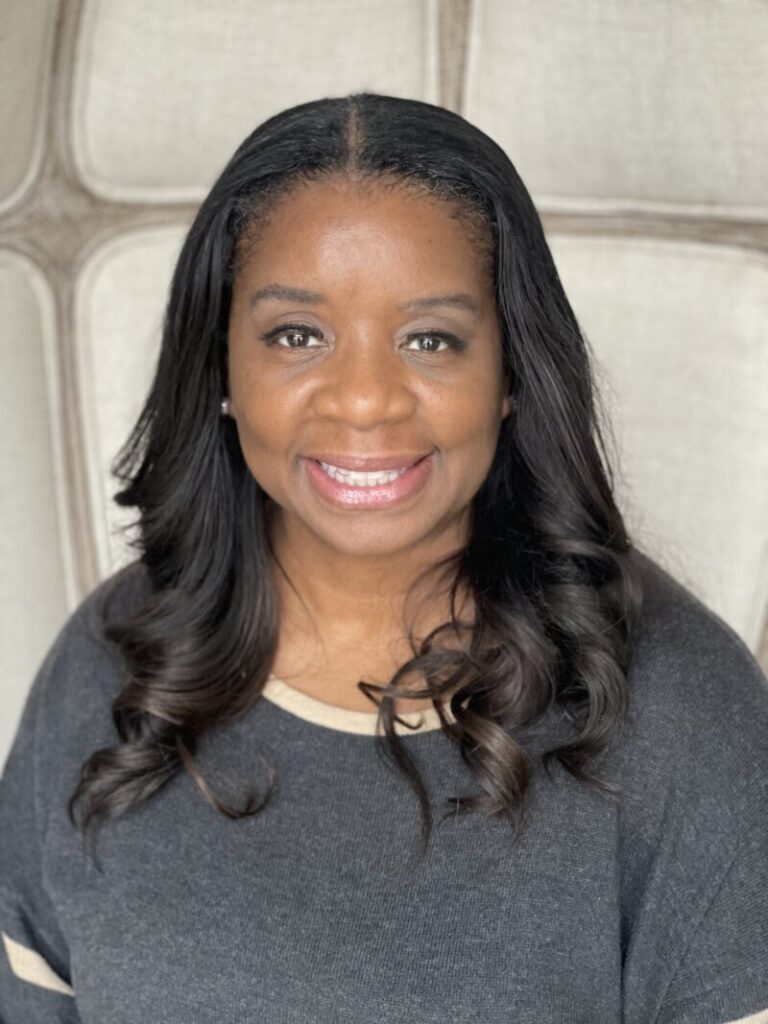Just about every woman I know has experienced a standout moment of workplace discrimination in one form or another. As a Black woman working in technology, I have plenty of anecdotes. I’d like to tell you about one in particular and illustrate why Employee Resource Groups (ERGs) and mentoring matter so much – and what’s still lacking when it comes to corporate mentoring programs.
Earlier in my career I was the Global eCommerce Manager for a tech company. We were meeting with various vendors to decide which partners we’d work with and gain a better understanding of their go-to-market strategies. I arrived early and sat at the meeting room table catching up on emails, waiting for everyone else to arrive.
The group from the partner company came in, sat down and before I could introduce myself, immediately began discussing their strategy on how they’d approach the key decision maker (aka me). They completely ignored me. I was invisible to them.
Although most of them were mortified when the rest of my team arrived and we all introduced ourselves, one man was particularly arrogant. He kept deferring to a member of my team, who kept redirecting him to me. Unfortunately, this was not an isolated incident as it pertains to my career and indeed my personal life.
While some of the behavior is blatant racism or sexism or whatever “ism” particular individuals may hold, the truth is we all have some form of unconscious bias deeply rooted inus. We may not be aware, but we do have them. Both my younger sister and niece have started their professional career and I tell them quite often to trust their intuition. If you think something’s not right or you feel you’re being overlooked, don’t dismiss it. Remember, you have a right to be in the room, but quite often you may also feel the added pressure to prove it and that can be exhausting.
Why I Started An ERG
At my current organization, ServiceMax, I started an ERG for Black Employees and Allies United (BEAU) in 2020. It was shortly after George Floyd was killed by police. I contacted the Chief HR Officer and told her bluntly that people like me are hurting. The CEO and Chief HR Officer called me and another colleague, asking how they could help. It wasn’t just lip service.
The conversation was genuine and organic. As my colleague and I shared our stories, and I explained the conversations I have with my children especially my son regarding how he needs to conduct himself if we are ever pulled over, or why he can’t wear his hoodie over his head at night – we all started crying. Our CEO and CFO became executive sponsors of BEAU and they still check in on a regular basis. Shortly after that came the wave of Asian hate in the US and the Asian and Pacific Islanders ERG was born. While both ERGs were born out of crisis, they continue to flourish.
Our CFO has participated in speaking engagements, that the BEAU ERG has sponsored for Black, Indigenous, and people of color (BIPOC) youth. We’ve partnered with the YWCA, creating bite sized content to help educate all who were interested in BIPOC history and unconscious bias. It’s been a platform for organic, truthful, and deep conversations. Last year we did a Juneteenth celebration that walked us through the 1800’s to present day. We discussed the birth of a few stereotypes, why certain foods are used to celebrate Juneteenth and stories of often forgotten brave men and women.
ERGs create platforms to have these conversations, educate us on different perspectives and insights into cultural awareness and hopefully unlearn any deeply ingrained biases. You don’t have to be a minority to attend an ERG minority group. I’d encourage you to engage with an ERG in your own organization that interests you and look through a different lens.
Mentoring, on the other hand, while invaluable and instrumental, is still lacking in both structure and diversity in most organizations. It’s often mistaken for a feel-good friendship. That’s not the case. You want your mentor to hold you accountable (and vice versa), give you truthful advice and meaningful support.
Mentoring – Be Your Own Match Maker
In the same way that not every individual contributor makes a great leader, not every person makes a great mentor. If you don’t have a mentor, I’d urge you to get one, but it’s important to be clear about expectations on both sides, and the style of mentoring that would benefit you best (e.g. nurturing or delegation). It’s also important to remember that your mentor doesn’t need to look like you. You don’t have to be the same gender or ethnicity. A white man may be the perfect mentor to help you understand and navigate a particular challenge. I’m enjoying mentoring two people at the moment. One is a young man with a very different background and perspective to mine, and it’s so rewarding.
What’s still missing from mentoring in my opinion is basic structure. Mentoring is very loose and that’s OK for some people, but HR could and should be putting more scaffolding around these programs. (A good place to start would be having more diversity in HR itself).
Finally, don’t just look at someone who is successful or in the role you’re aspiring to be in some day and assume they would be a good mentor for you. Study them for a while. Look at how they conduct meetings, how they carry themselves, what you admire (or don’t) and decide whether you’d be a good fit for each other. The current lack of structure around mentoring means you have to be your own match maker. Go out there and find yours.
Angela Smith-Sly is Senior Business Operations, Global Professional Services for ServiceMax.






